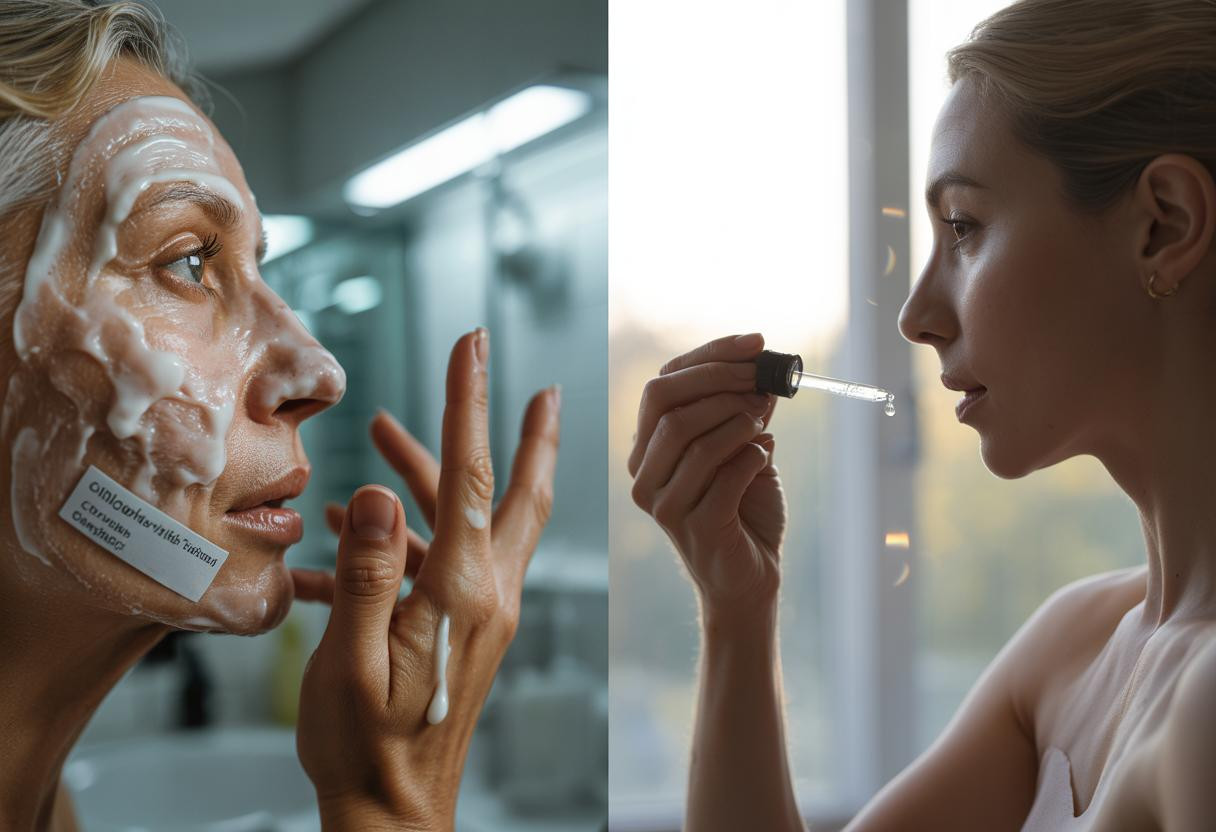A silent revolution is sweeping through dermatology offices worldwide in 2025. Dermatologists are increasingly abandoning collagen creams that once dominated skincare routines. This dramatic shift isn’t happening on a whim—it’s backed by compelling scientific evidence that challenges everything we thought we knew about topical collagen applications.
The science behind the exodus
The inconvenient truth dermatologists can no longer ignore: collagen molecules are simply too large to penetrate the skin barrier. “It’s like trying to push a basketball through a keyhole,” explains Dr. Samantha Reid, a renowned dermatologist with over 20 years of experience. “Topical collagen sits on the surface, creating an illusion of improvement while failing to reach the dermis where it’s actually needed.”
Why we fell for the collagen cream promise
The skincare industry masterfully marketed collagen creams as miracle solutions, playing on our understanding that collagen loss causes aging. Many consumers logically assumed that applying collagen would replace what’s lost—a misconception that persisted for decades despite mounting scientific evidence to the contrary.
“The collagen cream phenomenon represents one of skincare’s greatest disconnects between marketing and scientific reality,” notes Dr. James Chen, clinical researcher at Northeastern Dermatology Institute.
What actually works for collagen production
Instead of ineffective creams, dermatologists now recommend ingredients scientifically proven to stimulate your body’s natural collagen production:
- Retinoids – The gold standard for increasing collagen synthesis
- Vitamin C serums – Essential for collagen formation
- Peptide formulations – Signal skin cells to produce more collagen
- Growth factor serums – Support skin’s regenerative processes
The holistic approach gaining momentum
Beyond topicals, the focus has shifted to a comprehensive approach. Much like how some have transformed their hair health through lifestyle changes, skin health also benefits from inside-out strategies. Dermatologists now emphasize diet, hydration, and proper sun protection alongside effective topicals.
Consumer awareness and regulatory scrutiny
As consumers become more educated about skincare science, brands face increasing pressure to deliver proven results. This shift parallels growing awareness about problematic ingredients banned in other countries but still permitted in American products.
The emotional toll of ineffective skincare
For many, discovering their expensive collagen creams provided minimal benefits has been disheartening. Sarah, a 45-year-old accountant, shares: “I spent thousands on premium collagen creams over the years. Learning they were essentially glorified moisturizers was like finding out Santa isn’t real—in my forties.”
Signs your skincare routine needs updating
Watch for these indicators that your regimen may be outdated:
- Heavy reliance on products marketed primarily for collagen content
- Minimal results despite consistent use of expensive products
- Neglecting protective measures while focusing on treatment products
- Overlooking how your habits affect skin aging
Finding your path forward
The journey to effective skincare resembles what many experience with hair transformation—sometimes simpler approaches yield better results. Start by consulting with a dermatologist who stays current with research, not sales representatives pushing the latest trend.
As we navigate this skincare revolution, remember that true innovation isn’t always about adding more—sometimes it’s about letting go of what science has proven ineffective. Your skin deserves ingredients that truly work, not just those that sound impressive on a label.
